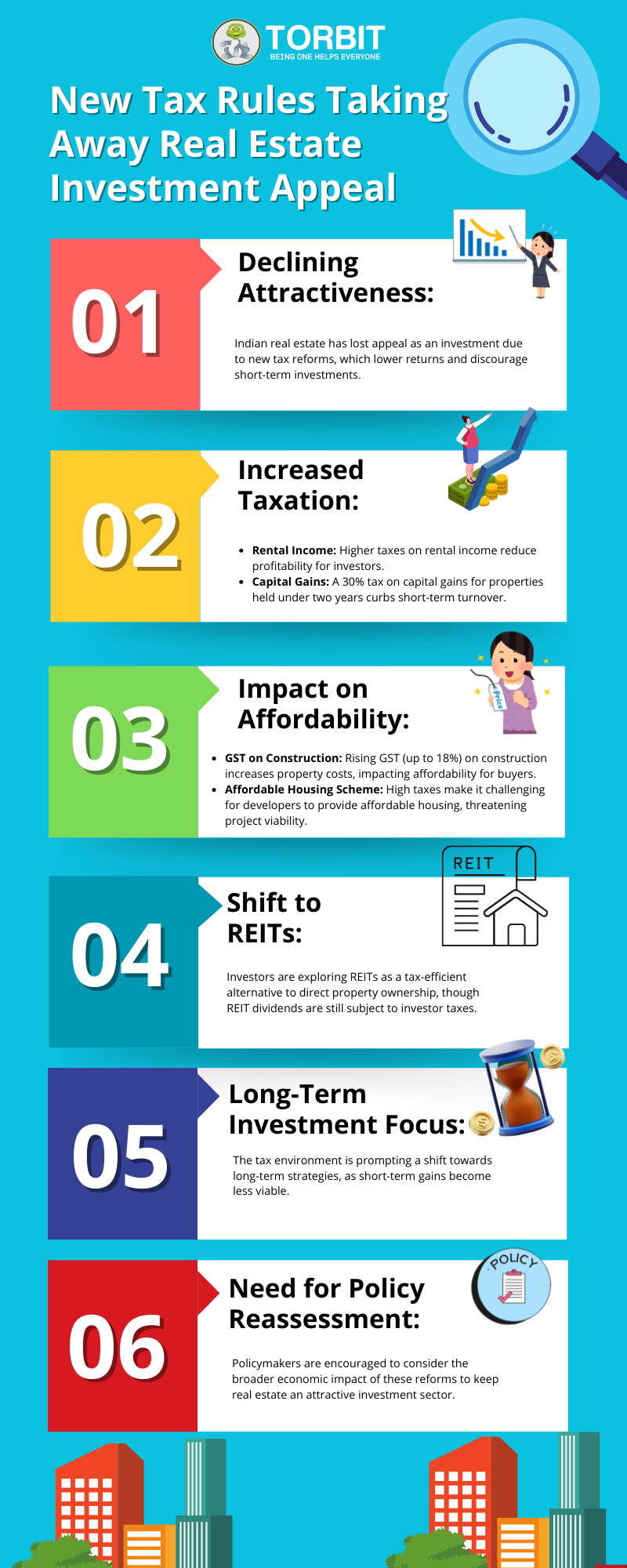
The Indian real estate sector has been a heaven for investment seekers looking at stable returns along with long-term growth. However, recent tax reforms gradually eroded the attractiveness of the Indian real estate market. Traditionally, real estate has been regarded as a hot investment asset class, especially during times of market volatility. However, new tax regulations are posing a significant hurdle for the investors.
Tax Changes Shaping Returns
Recent Union Budget Amendments by Finance Minister Nirmala Sitharaman. The recent budgetary amendments have hugely altered the tax scenario for real estate investors. The most significant development being the enhanced taxation on rental income. A 30% tax is to be levied on capital gains arising from the sale of property held for less than two years. Previously, investors enjoyed a lower tax bracket and offset losses against other income. Changes of this sort reduce net returns on investment and deter short-term speculation, which have been the biggest drivers in the real estate sector.
This development should be looked in the backdrop of average annual returns on residential real estate investment in major Indian cities getting reduced from 12% in 2014 to almost 6% in 2023.Majorly because of more taxation, the investors have lost the appeal of quick turnover and many change strategies to their investment.

Higher GST on Construction Services
At a time when Goods and Services Tax (GST) on construction services is increasingly moving towards 18%, its direct impact begins to be felt on prices. When costs from the constructor are passed down to the buyer, affordability becomes a casaulty.
Effect on Affordable Housing
The new tax rules have also taken a toll on the government’s ambitious affordable housing scheme. While the Affordable Housing Scheme seeks to provide housing for all, the rising burden of taxation on developers may not let them dole out properties at a low rate. As much as 61% of developers, according to CREDAI, would contemplate changing their project viability, taking into account that it would be too much for them to handle these changes in taxation.
Investment Diversification Alternatives
Alternative investment channels, of course, are being sought more lately as the lustre on traditional routes in real estate dulls. Significant momentum has come with REITs, especially among retail investors who would want to own real estate without the problems of direct property ownership. However, REITs also have their problems as taxes on dividend distributions are handled by the investors, bringing down the overall margin on returns.
Conclusion: New Landscape
This new tax environment stands out as a major impediment to the growth and investments in the sector. Investors can be encouraged to rethink their approaches regarding long-term values rather than the gimmicks of short-term gains.
The basic consideration for tax policymakers should be the impact of such reforms on the real estate market and the economy at large. By setting out clear avenues for investing, the government could have renewed interest in the realty sector to remain an attractive investment option despite such changing financial scenario. Going forward, the continuation of the trend of real estate investment in India will depend both on the market dynamics and the regulatory environment within which real estate operates.





